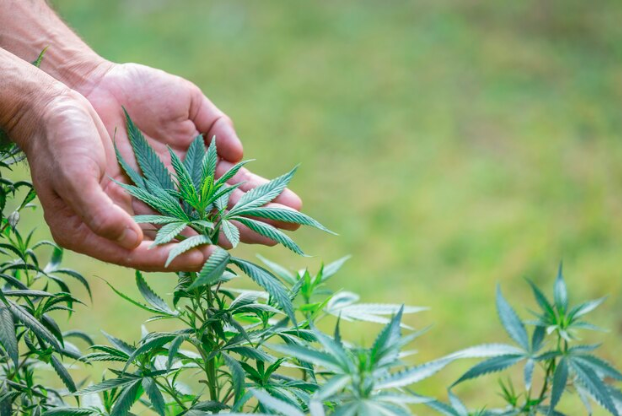The Role of THCa in the Cannabis Plant: An Overview

The cannabis plant has captivated humans for thousands of years, not only for its psychoactive properties but also for its medicinal and industrial uses. Among the many compounds found in cannabis, tetrahydrocannabinolic acid (THCa) stands out as a precursor to one of the most well-known cannabinoids, THC (tetrahydrocannabinol). Understanding the role of THCa in the cannabis plant is essential for anyone interested in the therapeutic potential of cannabis, the science of cannabinoid production, and the nuances of cannabis cultivation.
What is THCa?
THCa is a non-psychoactive cannabinoid present in the raw cannabis plant. It is one of the primary cannabinoids produced during the growth of cannabis, particularly in the flowers. Unlike THC, which is well-known for its psychoactive effects when consumed, THCa does not produce a “high.” This distinction is crucial for medical patients who seek the therapeutic benefits of cannabis without the intoxicating effects associated with THC.
The cannabis plant synthesizes THCa from cannabigerolic acid (CBGa) through a series of enzymatic reactions. This process is part of the plant’s natural metabolism and occurs predominantly in the trichomes—the tiny, hair-like structures on the surface of the plant. These trichomes also produce other important compounds, including terpenes and flavonoids, which contribute to the plant’s aroma, flavor, and potential therapeutic effects.
The Conversion to THC
One of the most fascinating aspects of THCa is its ability to convert to THC through a process known as decarboxylation. This transformation occurs when the plant material is heated, whether through smoking, vaporizing, or cooking. During decarboxylation, the acidic carboxyl group is removed from THCa, resulting in the formation of THC, which is the compound responsible for the psychoactive effects of cannabis.
This conversion is why raw cannabis is often considered less potent than cannabis that has been properly cured or prepared. While THCa in its raw form may offer some benefits, the therapeutic and psychoactive effects typically attributed to cannabis are primarily due to THC. Understanding this conversion process is vital for growers, consumers, and medical patients alike, as it affects how cannabis products are prepared and consumed.
Medicinal Benefits of THCa
Although THCa is non-psychoactive, research suggests that it may possess various therapeutic benefits. Early studies and anecdotal evidence indicate that THCa may help with conditions such as:
- Anti-Inflammatory Properties: THCa may exhibit anti-inflammatory effects, making it potentially beneficial for individuals suffering from conditions such as arthritis or other inflammatory disorders.
- Neuroprotective Effects: Some studies suggest that THCa may have neuroprotective properties, which could be valuable in the treatment of neurodegenerative diseases like Alzheimer’s and Parkinson’s.
- Appetite Stimulation: While THC is well-known for its appetite-stimulating effects, some preliminary research indicates that THCa may also contribute to increasing appetite, potentially helping patients undergoing treatments that cause nausea and loss of appetite.
- Nausea Relief: THCa has shown promise in alleviating nausea, particularly for patients undergoing chemotherapy. This property makes it a significant compound for those seeking relief without the psychoactive effects of THC.
- Antioxidant Properties: Preliminary research suggests that THCa may have antioxidant effects, which can help combat oxidative stress in the body.
These potential therapeutic benefits highlight the importance of THCa in cannabis research and the development of new medicinal products.
THCa and Cannabis Cultivation
Understanding the role of THCa in cannabis cultivation is crucial for growers seeking to maximize cannabinoid production. Factors such as light, temperature, humidity, and nutrients can influence the levels of THCa produced in the plant. Growers often focus on optimizing these conditions to increase THCa concentrations, which can subsequently be converted to THC during processing.
Additionally, the timing of harvest plays a significant role in cannabinoid profiles. Harvesting cannabis too early may result in lower THCa levels, while waiting too long can lead to increased THC but decreased THCa. Striking the right balance is essential for growers aiming to produce specific effects or medicinal properties in their cannabis products.
The Future of THCa Research
As the cannabis industry continues to grow and evolve, so does the research surrounding cannabinoids like THCa. While much is already known about THC and CBD (cannabidiol), THCa remains a relatively underexplored area. Researchers are increasingly interested in studying THCa’s potential benefits, mechanisms of action, and applications in various health conditions.
Furthermore, the legal landscape surrounding cannabis is changing, leading to increased funding and support for research initiatives. This shift may result in a better understanding of THCa and its role in the cannabis plant, ultimately benefiting patients, consumers, and the cannabis industry as a whole.
Conclusion
THCa plays a vital role in the cannabis plant, serving as a precursor to THC and potentially offering a range of therapeutic benefits in its own right. As interest in cannabis continues to grow, understanding the intricacies of cannabinoids like THCa will be essential for unlocking the full potential of this remarkable plant. Whether for medicinal use or simply to appreciate its complexities, the journey into the world of THCa is just beginning, promising exciting developments for researchers, cultivators, and consumers alike.






